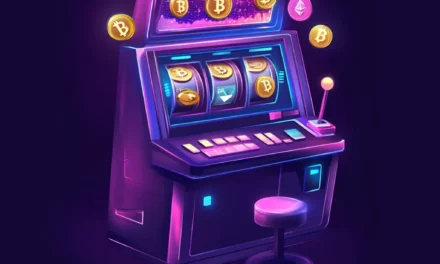NFT staking is an innovative concept that allows non-fungible token (NFT) holders to earn rewards by locking up their assets on specific platforms. Much like traditional cryptocurrency staking, where coins are locked in a blockchain to support operations and earn interest, the NFT version leverages the unique value of NFTs in a similar way. Through this action, holders can generate passive income or other rewards without having to sell their digital assets.
How It Works
NFT staking involves locking your NFTs in a specific platform or protocol. The staked NFT is typically held in a smart contract, where it generates rewards over time. These rewards are usually in the form of the platform’s native tokens or other benefits like governance rights, additional NFTs, or access to exclusive experiences. Once the staking period is over or certain conditions are met, the NFT is returned to the holder, along with the accumulated rewards.
Many platforms that support NFT staking are decentralized finance (DeFi) protocols or dedicated NFT platforms built on blockchain networks like Ethereum, Binance Smart Chain, or Solana. They can also be gaming crypto platformks like CoinGames, who introduced its Rising Legends NFT collection in June this year.
Benefits of NFT Staking
- Passive Income: One of the key advantages of NFT staking is the ability to generate passive income. By staking your NFTs, you can earn rewards, usually in the form of cryptocurrency tokens, without having to sell your NFTs. This allows you to retain ownership of your digital assets while still profiting from them.
- Increased Utility: For many NFTs, especially those related to digital art or collectibles, staking adds a new layer of utility. Instead of being limited to holding or trading the NFT, it creates an additional way to derive value from your assets.
- Exclusive Rewards: Some platforms offer exclusive rewards for NFT stakers, such as access to rare or limited-edition NFTs, governance tokens, or entry into special events. This adds further value to staking and encourages active participation in the platform.
- Ownership Retention: Unlike selling, staking does not require the holder to part with their NFTs. This is especially important for collectors who believe their NFTs may increase in value over time but still want to earn rewards in the short term.
- Enhanced Ecosystem Engagement: it encourages deeper engagement with the ecosystem surrounding a particular project or platform. Holders who stake their NFTs are often granted governance rights or decision-making power, which allows them to influence the future of the platform.
- Potential for Token Appreciation: The rewards you earn from it are often in the form of native tokens, which themselves can appreciate in value. This adds another potential profit avenue beyond the rewards earned through staking.
The Future of NFT Staking
As the NFT space continues to evolve, staking is likely to become a key mechanism in adding value and utility to these digital assets. It bridges the gap between DeFi and NFTs, creating new opportunities for holders to earn passive income, access exclusive content, and contribute to decentralized ecosystems. With increasing adoption across various platforms, NFT staking is poised to play an important role in the future of blockchain-based assets.
For more insights regarding NFTs and everything crypto, as well as gaming updates, follow our Twitter page and keep up to date on our blog! To start your very own decentralized gambling experience, join CoinGames today and benefit from over 10,000 games and a variety of specialized casino and sportsbook promotions every month!




